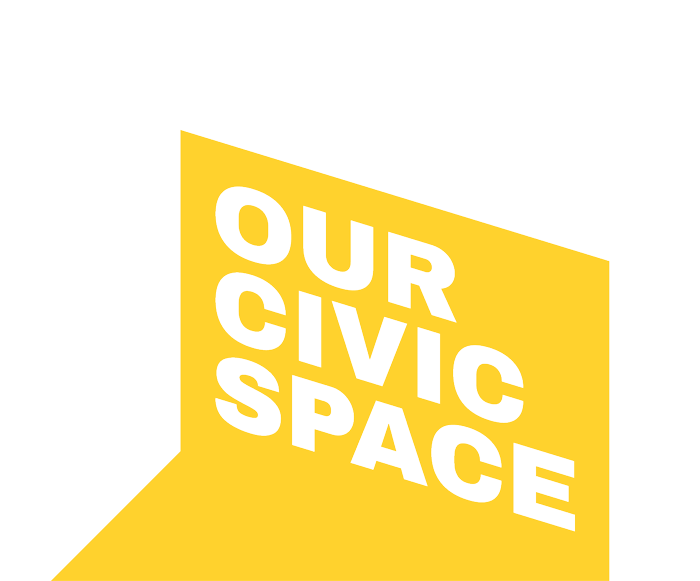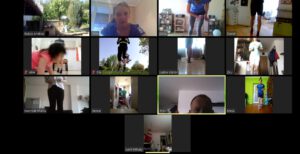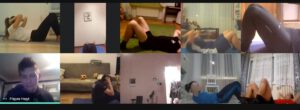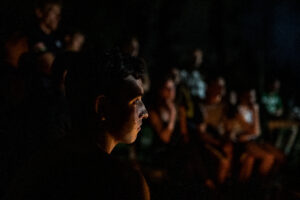“Volunteering helps direct a group of different people in one direction”
Kristýna has been in the world of volunteering for fifteen years. In 2020, she wanted to gain another experience and went on a project to Iceland within the European Solidarity Corps. What impact does volunteering have exactly and how does it affect Krystýna herself?
Could you describe your volunteering journey?
My story is not about a big change in life nor about the first major experience with international volunteering. It’s more about the fact that even on the turn of thirty years with some work and life experience in the pocket, one can leave everything and just live in the moment for a few months. How did that happen? After almost three years of work and an endless master’s degree, I needed a change. Instead of the depressing months of a persistent search for a new job from the “comfortable” background of the “mama hotel”, I went to the Icelandic countryside to plant trees. Some of my family members said that trees do not grow in Iceland because the soil is too hot due to volcanic activity. It was clear to me that I had to credibly and permanently refute this hoax. The future of Iceland was in my hands!
Looking back, it was the best move I could make. I can’t imagine a better place to spend a COVID-19 pandemic than an isolated Icelandic farm.
How has volunteering affected you in your everyday life?
This trip to Iceland completely turned my ordinary life upside down. From Prague I went directly to a farm, which is nearby to a lake, church, cemetery, but the nearest living neighbours are far away. Just like in Prague, we know their names and we know exactly when they are going to the city, but we have never met them in person. We were a random group of volunteers with 5-12 people, often speaking a similar number of different languages. We had to drive half an hour to the store and no, there was no 24 hours store here. We also read that one of the roads would be unattended from October… so we started to build stocks of cans. You never know when the first snow will fall in Iceland. It could be in a month, a week or in 5 minutes.
I didn’t use a car at all in Prague, but here we pretty much couldn’t move without a car! Sometimes we broke down into a muddy road and we had to wait for someone with a tractor. Before the first snowfall, one of us learned how to drive the tractor!
In Prague, I usually avoided the morning rush hours and arrived at the office around 11 o’clock but not due to the reason that I didn’t want to get up. In Iceland, I got up at eight o’clock everyday and around nine, I set off outside into bad weather. In Prague, I compensated for my office hours in front of a computer by climbing artificial walls in the evening. In Iceland, after working all day in the fresh air, I sometimes felt like climbing stairs to my room on all fours. The work is not physically demanding, it’s rather the fresh wind and one digit temperatures.
To sum it up, my everyday life has turned upside down. And that’s exactly why I chose this project and this country. I don’t quite understand how various “retreat” centres can prosper, when thanks to financial support from the European Commission I can complete my anti-civilization detox involving planting thousands of trees in tourists admired but heavily eroded Icelandic “Highlands” without having to pay for it.
What was the impact of your volunteering?
Anyone who has visited Iceland, including the Icelandic people themselves, enjoy the endless views, which offer endless possibilities for panoramic photographs. Originally, the landscape was up to forty percent overgrown with trees and shrubs. These have been utilised and the local ecosystem is currently so unstable that it cannot return to its original state without human help. The thousands of trees we plant in heaths and deserts help to stop soil erosion and restore the original stable ecosystem.
As some members of my family would remark: “Why don’t the locals plant those trees!?”. Some are planting, but many Icelanders have become used to the wide panoramic views and free-moving sheep families and some of them are already under the impression that trees do not belong in Iceland. Foreign volunteers bring a different experience and help to change deep-rooted prejudices, just like anywhere else in the world.
Written by INEX



